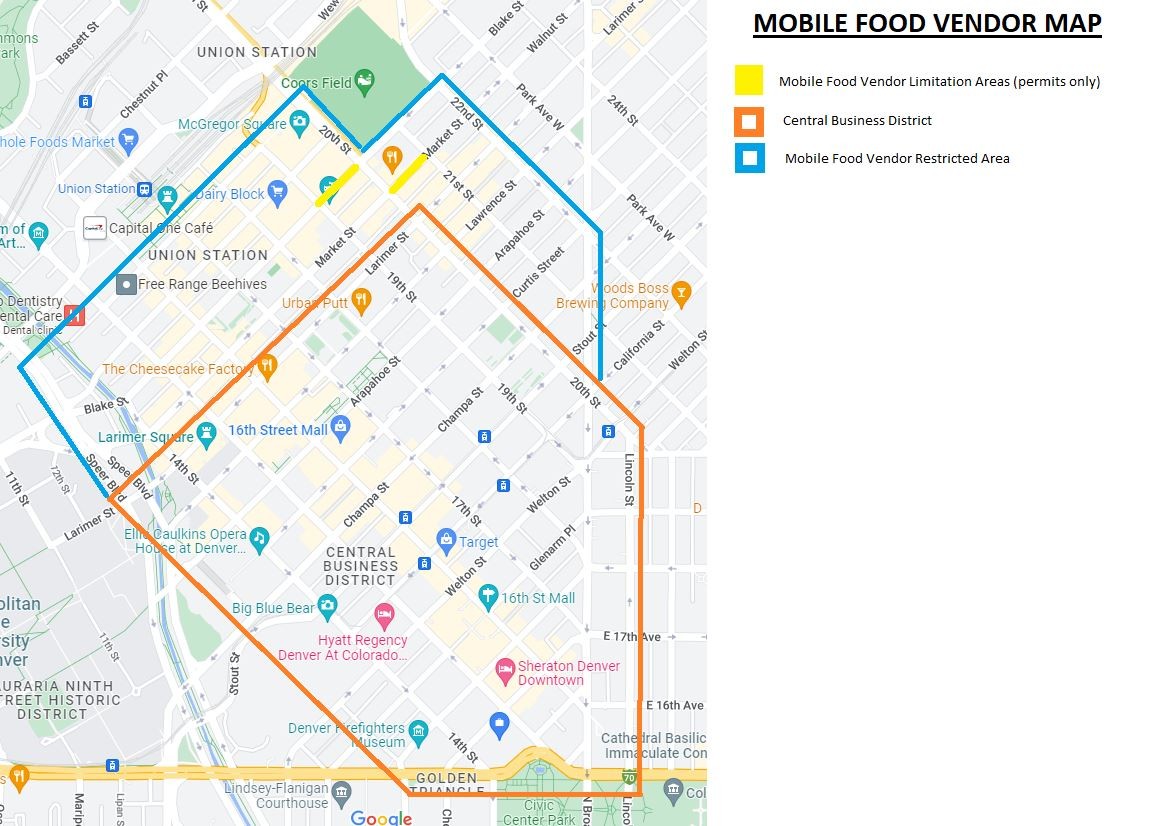Food truck vendors are widely known for delicious late-night snacks — ones that are 10 times more delicious than any fast food or drive-through grub. In late July, a food truck ban was instilled by the Denver Department of Transportation and Infrastructure and the Denver Department of Excise and Licenses that applied to zones of Blake, Market and Larimer Street on Fridays and Saturdays. Although this ban has since been lifted, new rules and regulations are now in play for food vendors that cater to the LoDo area.
The ban was established after Denver Police Department officers were involved in a shooting that wounded six bystanders exiting the bars on Larimer Street late in the night. The food truck prohibition was lifted last month, but now vendors must follow new limitations due to the recent rise in violence. According to the City of Denver, “High levels of mobile food vendor activity in the right-of-way, sidewalks and other public thoroughfares, particularly in the LoDo and DUS areas during the weekday evenings and on weekends and holidays, have contributed to public safety concerns.” The City is concerned that increased crowding in areas where food trucks tend to park correlates with violence, but this begs the question — are food truck vendors subsequent victims of this violence?
Selene Nestor, cofounder of the Hispanic Restaurant Association (HRA), discovered the food truck ban as we all did — through the news. “It was obviously a very unfortunate situation, and we don’t condone violence in any way in our county. But after we heard on the news that the food trucks were going to go into a ban, we obviously were pretty upset about that because a big majority of our members for the association are food truck vendors. That hit close to home and we wanted to be there for them,” Nestor said. This ban threatened the livelihood of food truck vendors and the HRA recognized this. “We started talking to the media to try and bring some awareness to what was going on. We wanted the violence to end, but we also wanted our food trucks to be back in business. I mean, most of their money is made right after the bar’s closed. That’s why we got involved.”

Map of mobile food vendor restricted area. Photo courtesy of Denver Department of Transportation and Infrastructure.
The new regulations will remain in effect for 180 days, but more permanent measures may soon follow. This temporary system created a “Restricted Area” that allows food trucks, push carts and other peddlers to operate on weekends but with restrictions. Also, no food trucks are allowed in the Central Business District. The rules read that food trucks with correct permits are allowed to operate in the restricted area between 5 a.m. and 9 p.m. on Fridays, Saturdays and holidays. Seven spots are available for food trucks with expanded operating hours till midnight on these days.
Nestor explained that she felt that these regulations are a happy medium for now. “It’s a good compromise, yeah, but obviously not where we want it to be. I’ve said this before, but some business is better than no business. We saw a lot of unity between those food trucks, and they were working together. It was really nice to see. So that made us happy.” Although these regulations are more practical than a full-out ban, more work still needs to be done. “We will continue to go to every hearing and just be present. If we can unify and create a bigger awareness to this issue, I think it would be great. Also, support your local businesses and food trucks. A lot of them have had to make changes to their hours of operation, so if you see them out there, stop by and try their food. They are amazing — every single one of them,” Nestor said.
On top of rallying behind food trucks, Hispanic Restaurant Week has arrived, and the HRA has some exciting plans lined up. For the first time, not only in Colorado but in all of the country, Governor Polis recognized Hispanic Restaurant Week expanding from September 22 – October 3 with an official proclamation. Visit your favorite Hispanic food truck vendors this week to support their work and dine on mouthwatering mobile cuisine. Some amazing options participating include Luchador, Mi Rey Social, Tulas Tapas, Bits N Pieces, Cilantro & Perejil, The Road Runner, and more. Hispanic Top Chef is another must-attend event occurring at the end of Hispanic Heritage Month on October 15th. “Again, it celebrates minority-owned businesses and food trucks. We’re probably also going to have some of the food truck owners. So, we want to support and elevate everybody,” Nestor stated. Tickets are on sale now for Hispanic Top Chef 2022. Even if you can’t attend, this month is one to support food trucks everywhere and continue to invest in the livelihood of others — even through times of difficulty.
Hispanic Restaurant Week takes place from September 22 through October 3. Hispanic Top Chef is on October 15 from 12 – 5 p.m. at 4817 National Western Dr, Denver. Visit its website to secure your spot.

